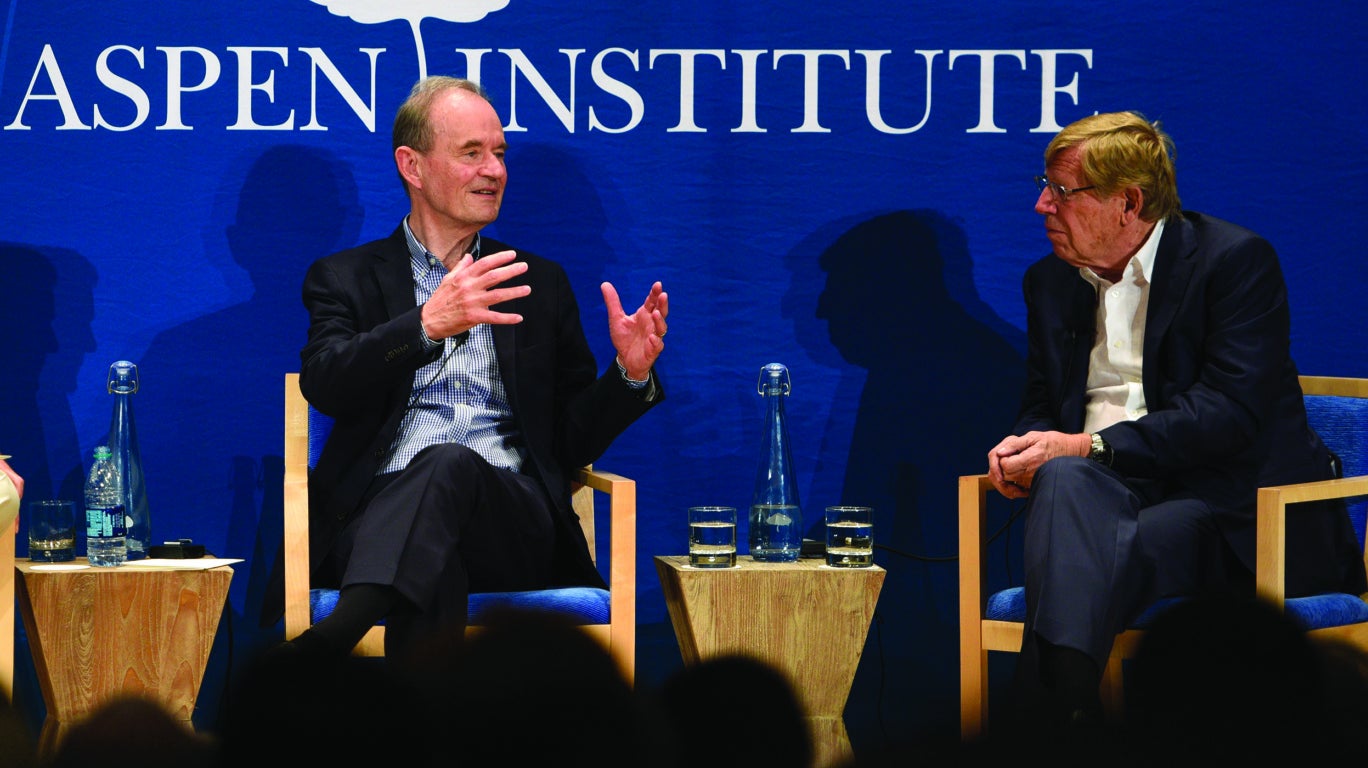
David Boies and Theodore Olson explain why they crossed the aisle to fight for marriage equality.
In August, the Institute presented trial lawyers David Boies, the chairman of Boies, Schiller & Flexner, and former Solicitor General Theodore Olson, a partner at Gibson, Dunn & Crutcher,with its Public Service Award, which is given to those who professionally and personally exemplify the fundamental values of democracy. Each was for decades a stellar lawyer who had argued dozens of cases before the US Supreme Court. Each was strongly associated with a political worldview: Boies liberal, Olson conservative. The two first faced off in 2000, arguing opposite sides in Bush v. Gore—and first joined forces nine years later as co-counsels to overturn California’s Proposition 8, seeing same-sex marriage not as a liberal or conservative issue but one of basic human rights. Recipients of the Public Service Award have a record of coalition building and strongly representing the timeless ideals of tolerance, justice, and respect for open-minded dialogue—exactly what Boies and Olson did in paving the way for the 2015 Supreme Court decision in Obergefell v. Hodges, establishing same-sex marriage as a fundamental right.
In conversation with Walter Isaacson at the Summer Celebration, Boies and Olson said that a crucial part of their work was disagreeing in a civil manner, and doing so respectfully.
“We recognize, when we have conversations,” Boies said, “that there will be things we disagree on. But even when we disagree, we recognize that as part of a good-faith process you go through in a democracy. The reason you have elections is that people disagree. But you don’t have to be disagreeable to disagree.”
“We had to try to change public opinion,” Olson said. “We were going to present this as not a conservative or liberal issue, nor a Democrat or Republican issue … but a constitutional issue. An American issue.” Boies agreed, noting that the issue of same-sex marriage was a particularly exemplary chance to work across the aisle.
“The thing about marriage equality is that almost everybody believes in love,” Boies said. “Believes in family. Believes in equality. And that, I think, is what the case was about.”